
The Curious Story of Curious Flora Nursery
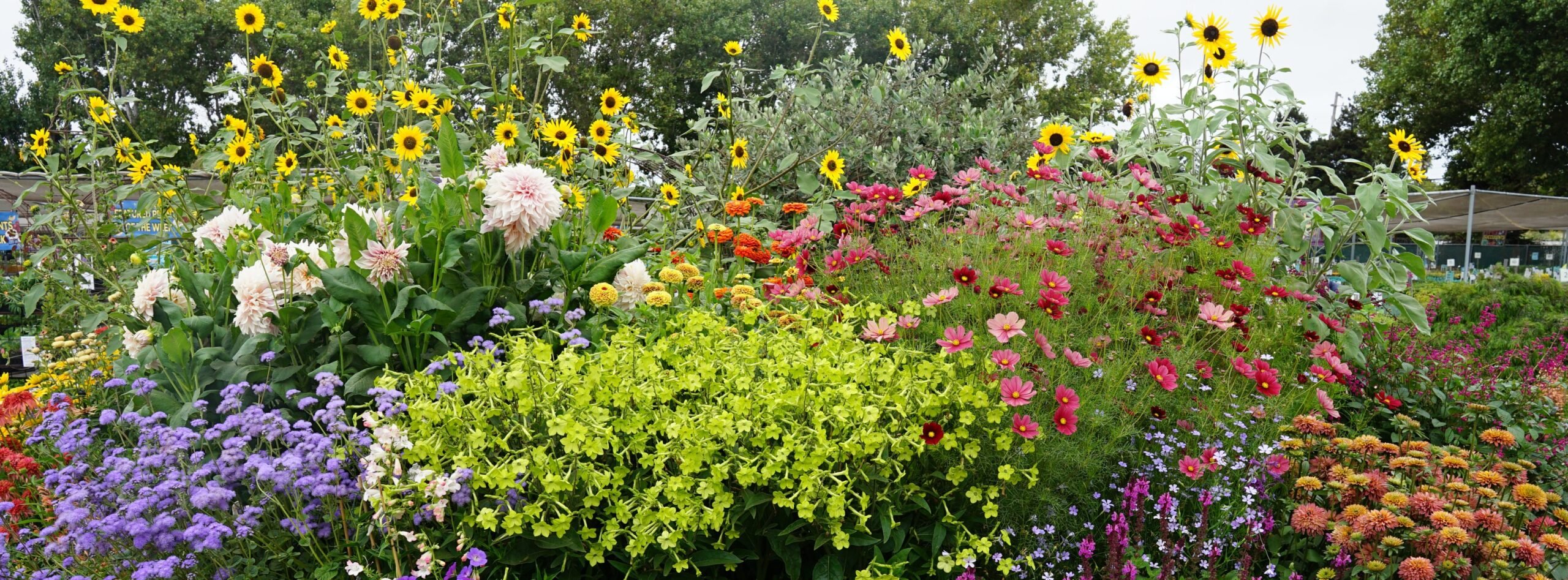
Contributor
- Topics: Nature is Good For You, Plants You Need
Summer 2025
This is a difficult time for nurseries in California. Legendary growers are shutting down as their owners age out, their children choose other professions, or their leases expire and they are unable to find new locations or simply can’t afford to move big, expensive operations. A few manage to find a new suitor, but most simply go away.
Then there’s the story of a scrappy little nursery in Richmond, California, that’s always done things quite differently—growing their own plants for both wholesale and retail, selling mostly uncommon, seed-grown plants, only selling four-inch pots, arranging nursery benches with plants organized alphabetically within category (shade, sun, grass, vegetable), and displaying each plant with a photo and handwritten description. Branded with the founder’s eclectic style, the nursery and its catalog featured polka dots, butterflies, and bright colors inspired by artist Mary Engelbreit. Visitors were welcomed to visit and picnic in the nursery’s garden setting, whether shopping or not.
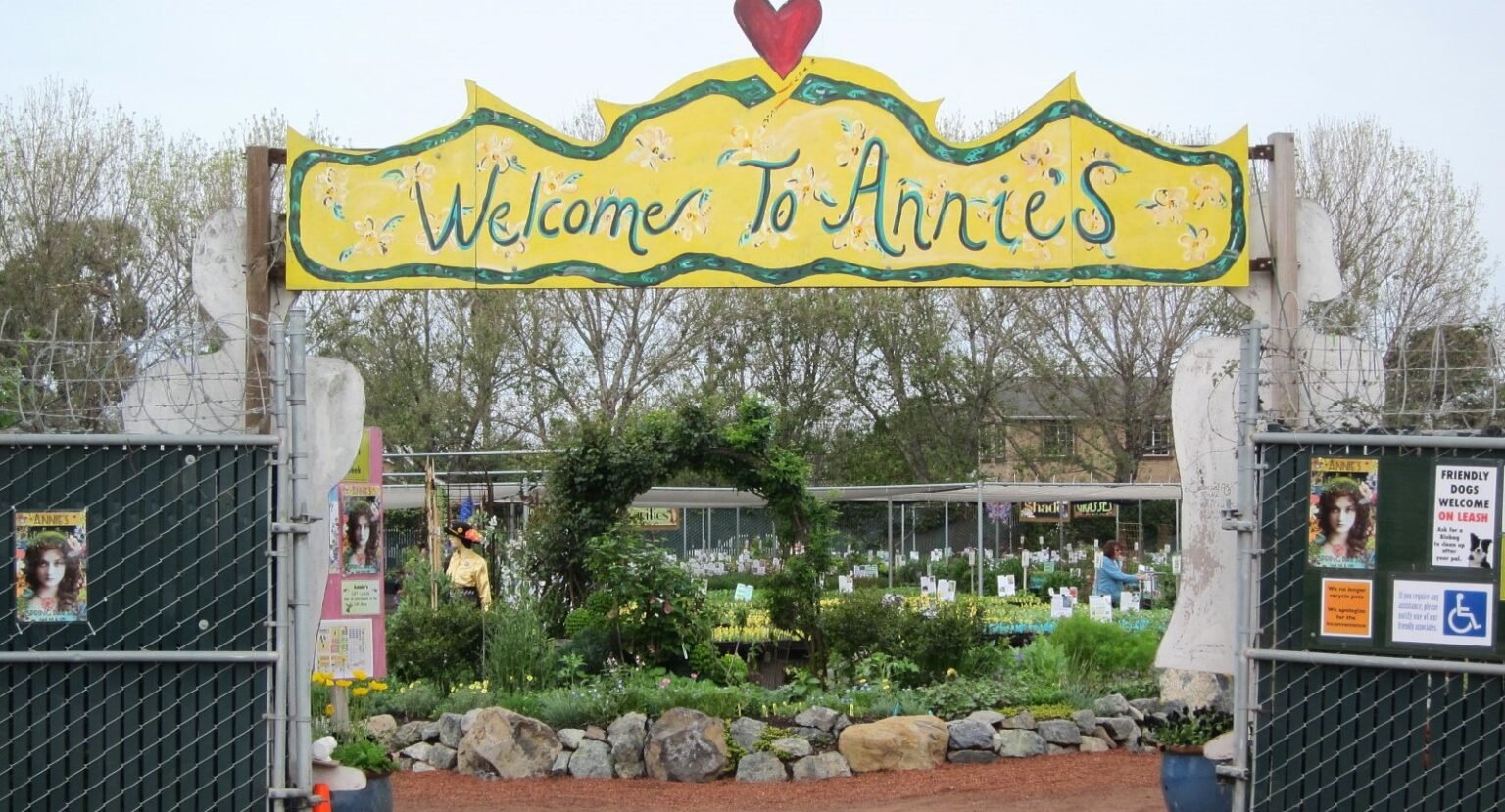
Annie’s Annuals and Perennials opened its doors in 2002 on 2.5 acres on the “wrong side of the tracks” in Richmond’s industrial area. The vivacious and irresistible Annie Hayes founded the nursery and was its public face for decades. By 2021, Annie had spent more than 30 years in the nursery business and was ready to retire. Customers breathed a collective sigh of relief when Sarah Hundley bought the business. There were inevitable changes, but everyone was shocked when Hundley abruptly shut down the nursery in October 2024, citing medical and business issues.
Normally, that would be the end of the story, but instead, this story just gets curiouser and curiouser.
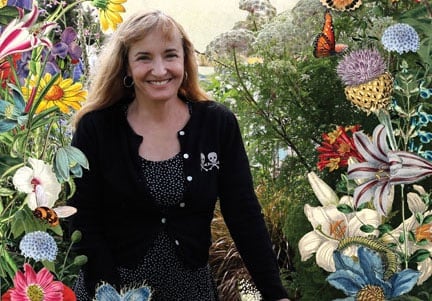
As Annie’s Annuals and Perennials went through the wind-down process, Hundley sold the intellectual property (such as the website, photos, and trademarks) to Peaceful Valley Farm Supply in Grass Valley, about two hours away. Meanwhile, the nursery staff, some of whom had been there from the very beginning, were tasked with preparing plants, greenhouses, fixtures, and the rest of the physical assets for liquidation.
The process was painful for both old-timers and newer staff members alike. But to one of the newcomers, it was a call to action.
Colleen Wheeler had worked at Annie’s for just over two years but had a long history in horticulture and agriculture. Teenage Wheeler worked in flower shops, and in nurseries in Southern California when she was in her early twenties. Young adult Wheeler studied horticulture in community college and at California State Polytechnic University, Pomona, known for the best horticulture program in Southern California and one of the top programs in the state. She’d spent time backpacking in Europe, where visits to botanic gardens strongly influenced her garden aesthetic.
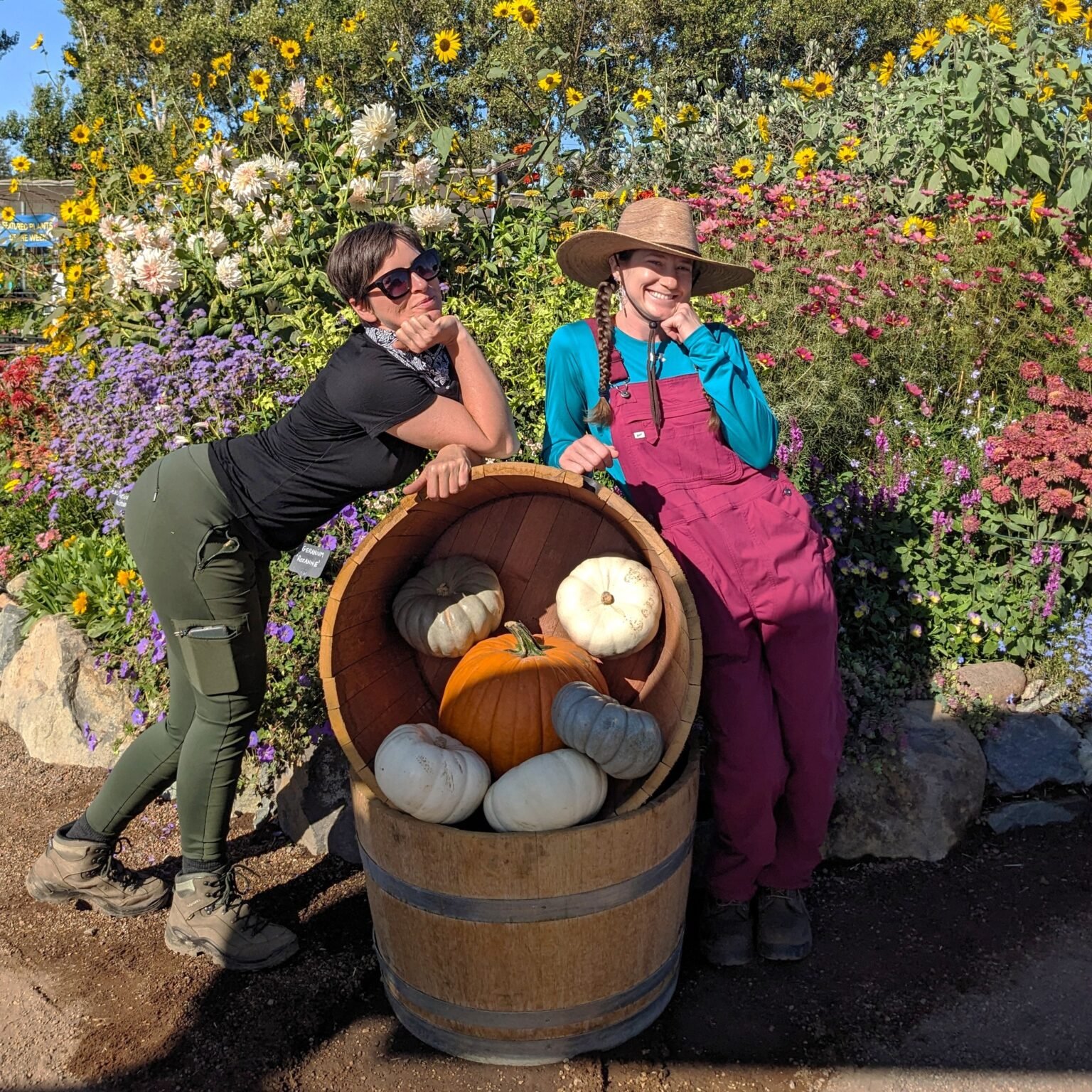
When she returned to California, Wheeler worked at Rancho Santa Ana Botanic Garden—today known as California Botanic Garden. It is the state’s largest botanic garden dedicated solely to growing and displaying California native plants.
After working both in the botanic garden’s display gardens and their Grow Native Nursery, Wheeler wanted to try her hand at farming. Land in Southern California was prohibitively expensive, so instead Wheeler headed to the Southern US where land prices were lower, water was plentiful, and there were unmet farming needs.
About a year in, “I realized that as a single woman farming, I was going to need to be somewhere I would have a network of fellow farmers I could rely on for support,” Wheeler said. “I met some truly remarkable farmers during my time in the South, but they were too widely dispersed.”
At a farming conference in North Carolina there was a lot of buzz about the Hudson Valley in New York, an area bursting with small-scale farms. “It was the birthplace and home to the Young Farmers Coalition, and while I was no longer young, I was a fresh, baby farmer,” she said.
After interviewing with several farms, Wheeler accepted the position of greenhouse manager at Hearty Roots Farm, a 50-acre mixed-vegetable farm. “It was large enough that I could specialize in my work,” she said, “it was close to the town of Hudson, which was as charming as any town ever was, and the owners of Hearty Roots Farm had formed the Young Farmers Coalition. It seemed like the perfect fit, and for five years it was.”
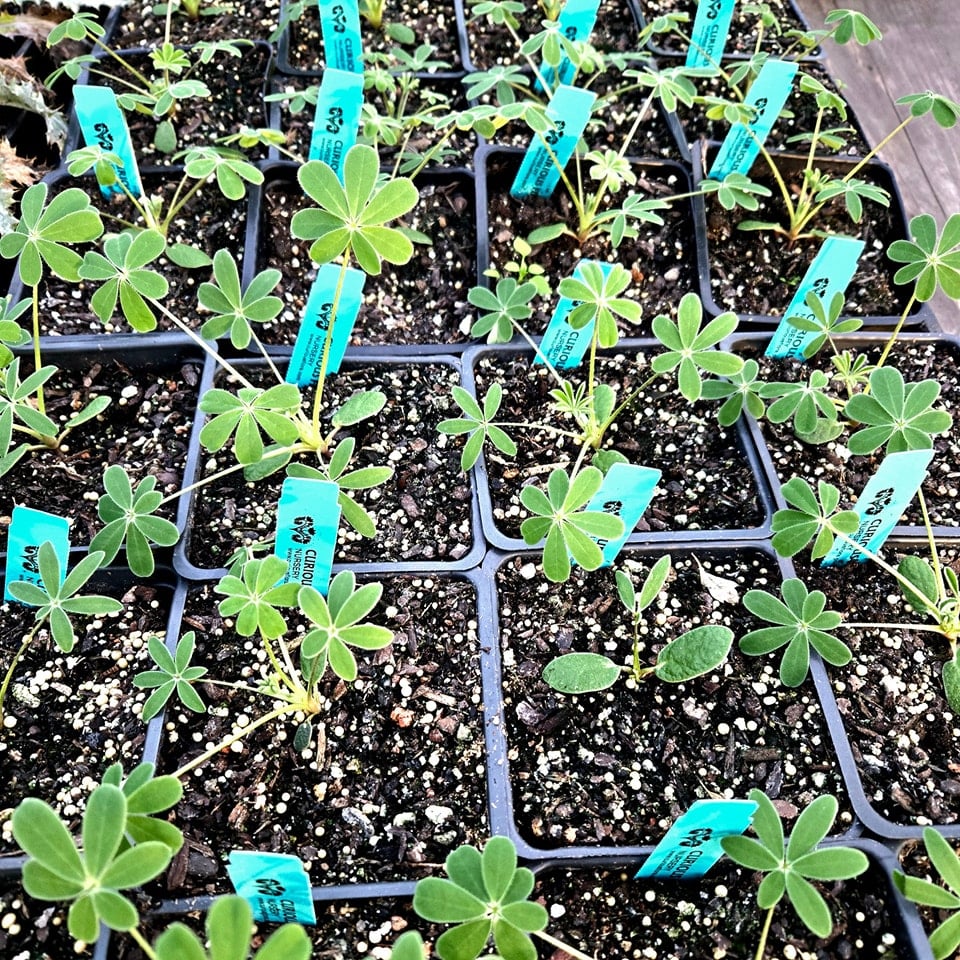
When she wasn’t farming, Wheeler hung out in nurseries and toured private and botanic gardens. “Farming was lovely,” she explained, “but the farming was really my side piece, while the love of my life was horticulture.”
Eventually, she realized it was time to go home, “I missed the California native plants that were such a big part of my life. It felt impossible to stay on the other side of the country.”
Back in California, Wheeler’s next adventure was running a horticulture program for men incarcerated in the Sonoma County jail. A few years later, Annie’s Annuals and Perennials reached out to Wheeler to discuss a position as head of research and development.
“I was thrilled, as any horticulturist would be,” she said. “I was very familiar with Annie’s Annuals. I had been making pilgrimages to the nursery from as early as 2002. It was an amazing opportunity to be a part of an organization that had such a widely known and [highly] regarded legacy.”
At Annie’s, Wheeler was responsible for designing the gardens, developing and maintaining the production plan, trialing plants, and introducing new plants into the nursery. For a time, she was head of propagation and production, as well.
A nursery reborn or reincarnated?
With the nursery about to shut down, Wheeler thought about the dedication of Annie’s customers and its staff. She was driven to keep it going, especially with so many nurseries closing.
“It felt so important to explore the option of keeping this open—as a production nursery,” Wheeler said, “It broke my heart to think we would lose another one.”
Wheeler quickly realized that the key to success was the staff. “They are the people who built this place. They made it what it was. … I recognized it as soon as I started working here,” she said. “How different it was than any other place I had ever worked. It’s so collaborative between every department, every team worked together.”
“So,” she continued, “the first thing I did was talk to the other managers. I knew I couldn’t do it without them and wouldn’t want to do it without them. … When they let me know they were interested in staying on, that’s when I went to Penny. We had a conversation that started as ‘Let’s explore this and just see where it takes us.’”
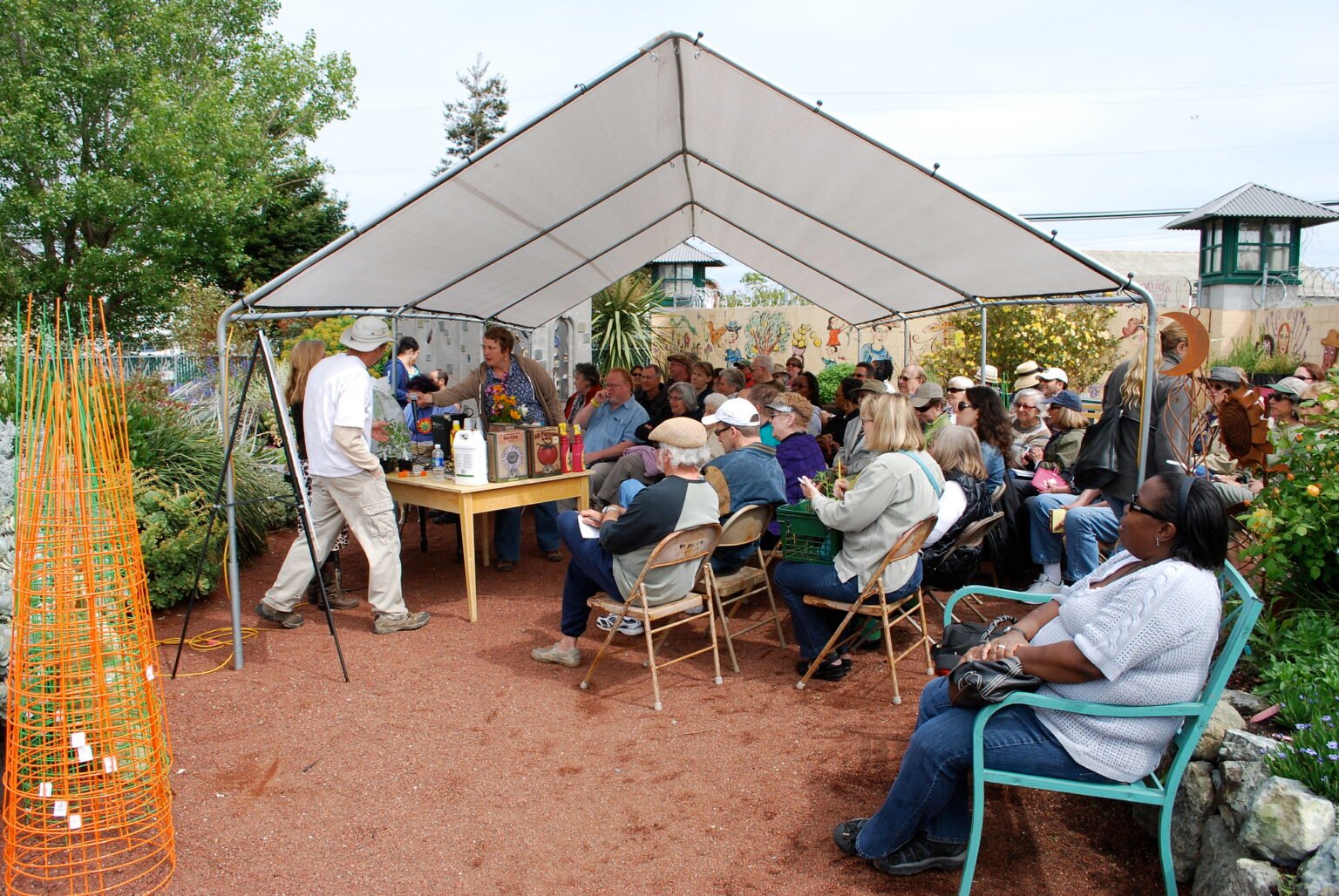
Penny is Penny Orland, Wheeler’s mother and a computer programmer and trainer for more than 40 years. Would Orland be willing to finance the project?
“Colleen was adamant about saving the nursery, in its original location, with the people, and save those jobs,” Orland said, “I remembered how she’s had this passion since she was a teeny girl, when she sat in the garden in her Sunday best dress and got her rear end all muddy.”
This of course was a different time and the stakes were high, Orland said, “I knew she could do it. That never faltered … she was so adamant about her desire to do this … yet the cost was enormous.”
After several discussions, Orland was on board. “I’m really lucky,” she said, “I feel privileged that I have the chance to give my daughter the opportunity to find her dream. Not all parents are in a position to do that.”
Next came a mad dash to the finish line. “Every day there was a new hurdle, and we thought [the deal] would fall apart,” Wheeler said, seeming to still be reeling from the experience. “Two weeks felt like three years, but at the end of 24 days, everything was locked in place. The papers were all signed. It was the longest 24 days of my life!”
Curiouser and curiouser
There was one last thing to do.
Since Peaceful Valley Farm Supply now owned the name “Annie’s Annuals and Perennials,” Wheeler needed a new name for her new-old nursery.
“I had two days to come up with a name,” she explained, “Anyone who has started a business knows how outlandish that is. I’ve daydreamed about having a nursery for 25 years and never came up with a name I liked, so to come up with a name in two days seemed crazy.”
Wheeler thought about her favorite inspirations for when she’s creating gardens, and when she’s most connected to plants. She remembered the refrain from Alice in Wonderland, “curiouser and curiouser,” which Alice repeats in Disney’s 1951 original animated film adaptation while walking through a garden filled with giant flowers.
“And I thought about what it is we do. At the core of everybody’s work was growing these amazing curiosities. These plants, many of them had never been seen commercially grown at the scale that Annie’s had been doing.” Wheeler said, adding that she wanted to focus on “bringing back the curiosities and also speaking to gardeners who are curious about learning, [the people who] approach the world of gardening with a strong curiosity. It seemed like such an integral part of who we are that we wanted to build it into the name.”
Just like that, Curious Flora Nursery reopened on November 2, 2024.
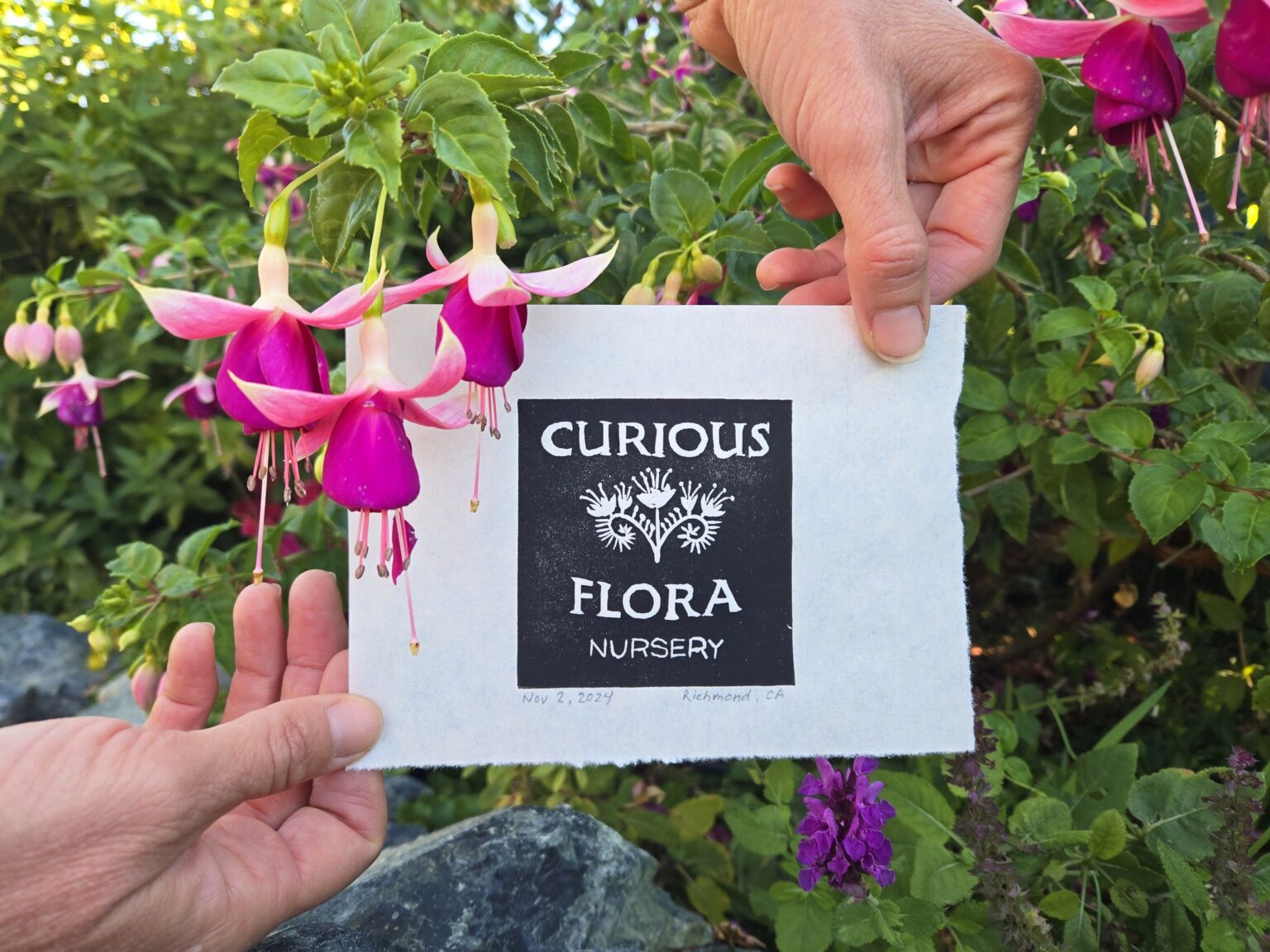
Curious Flora Nursery
Today, Curious Flora Nursery is run by a staff of 19, with 18 staying from before the closure. Wheeler admires the risk they took. “The staff did the bravest thing possible, to sign on to rebuild something they had already built once. About a week before we reopened, everyone walked in … the smiles, the misty eyes … I just don’t know that I’ve had a better day ever than knowing that I get to keep working with this amazing team, and that we get to keep doing the work we love with the plants we love.”
Using those same plants and methods, in the same facilities, those same hands continue to propagate plants that Curious Flora Nursery now sells to the same customers, and maybe a few new ones. Wheeler couldn’t be prouder. “I was there when the last person checked out at Annie’s and I cried,” said Wheeler. “I was there when the first person checked out at Curious, and I cried.”
As co-owners, Orland does the books, creating spreadsheets and templates to support operations, what she describes as being a more of a “silent partner.”
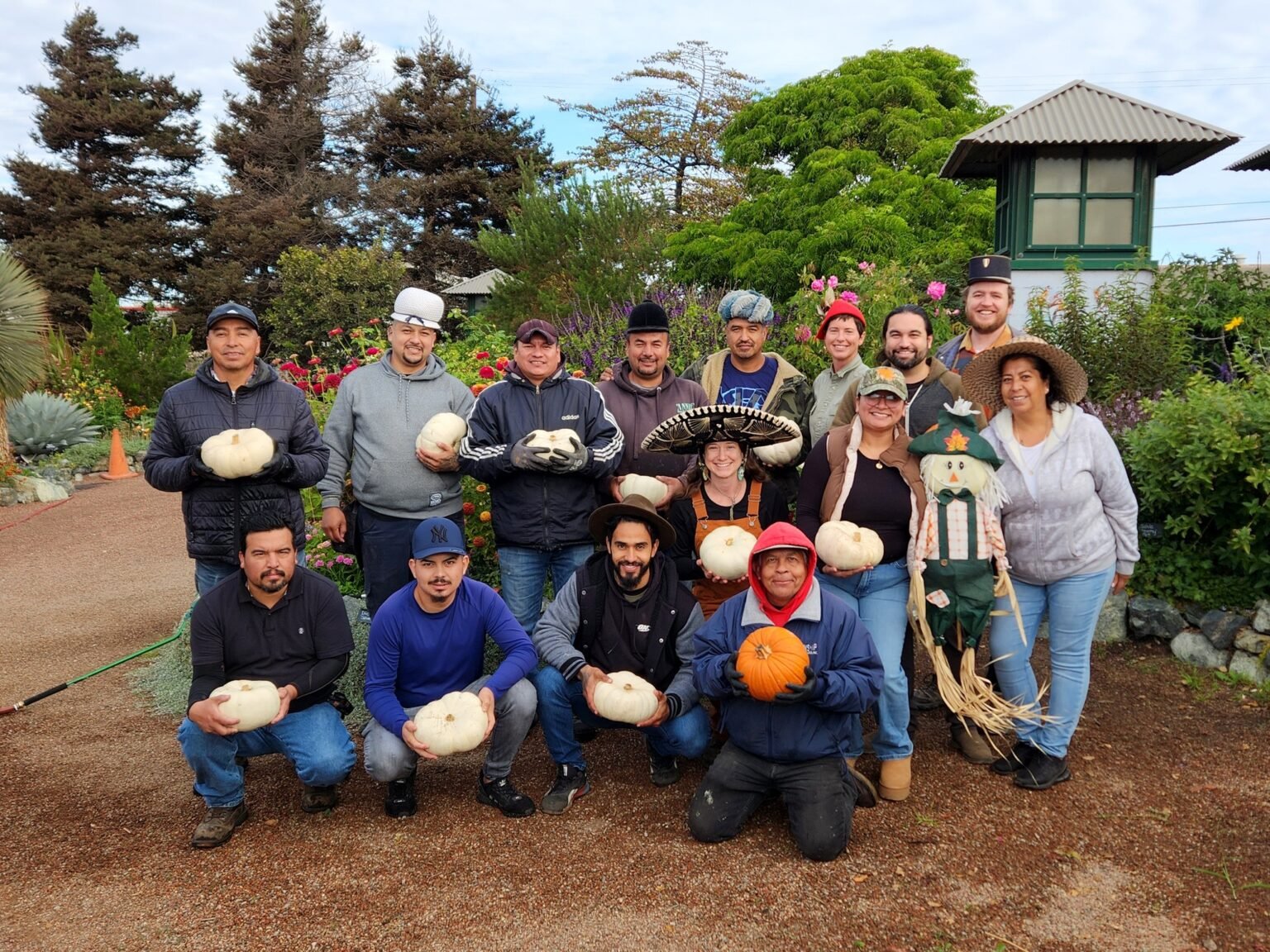
Wheeler continues to do research and development which includes introducing new curiosities to the nursery, according to the website (2024). In addition, she describes her role as “hype man,” elaborating that “I’m the person who’s so excited about what everyone else is doing … I’m like ‘come on, let’s go!’ … I can’t imagine ever growing tired of doing this and living in this world, in this community.”
Now, looking toward the future, Wheeler plans to develop a robust production program, she said. Achieving that goal means putting online ordering on hold. While Annie’s Annuals was renowned for their online business, Wheeler prefers to make Curious Flora Nursery plants available in local independent nurseries instead.
“If we do our job to the best of our ability as a producer and we support other retailers, it means that other nurseries get to thrive in other parts of the state,” she said. “That’s our goal by spring 2026, to be down from Southern California to the top of Northern California.”
Local nurseries do the best job of interfacing with the community, talking with gardeners about the plants, and helping them to be successful, Wheeler said. When that exchange happens online, “that gets lost,” she said. “If people have to come here to buy their plants, or if they go to their other local nurseries to buy plants, it gives us all a chance to talk to each other and to grow as gardeners.”
Expanded offerings and experiences
Wheeler recognizes Curious Flora Nursery as a destination nursery. “We are not in most people’s backyards,” she said. “We need to produce plants compelling enough for people to make the drive to come here.”
Curious Flora continues to produce what customers love the most: native annuals and perennials, heirloom classic cottage plants, and mediterranean climate plants. Wheeler intends to expand the curiosities and rare flora from among California and mediterranean climate natives, including hard-to-find bulbs like sword lilies (Gladiolus) and native butterfly lilies (Calochortus).
“We are doing all kinds of plants from seed, some collected in house because it’s no longer available in the marketplace,” she said, “Some are already in the marketplace, but they don’t match the strains we have. We’ll continue to grow maybe 50 percent of our plants from seed. We collect the seed, clean it, and sow it on-site. These are many of the plants we are most proud of.”
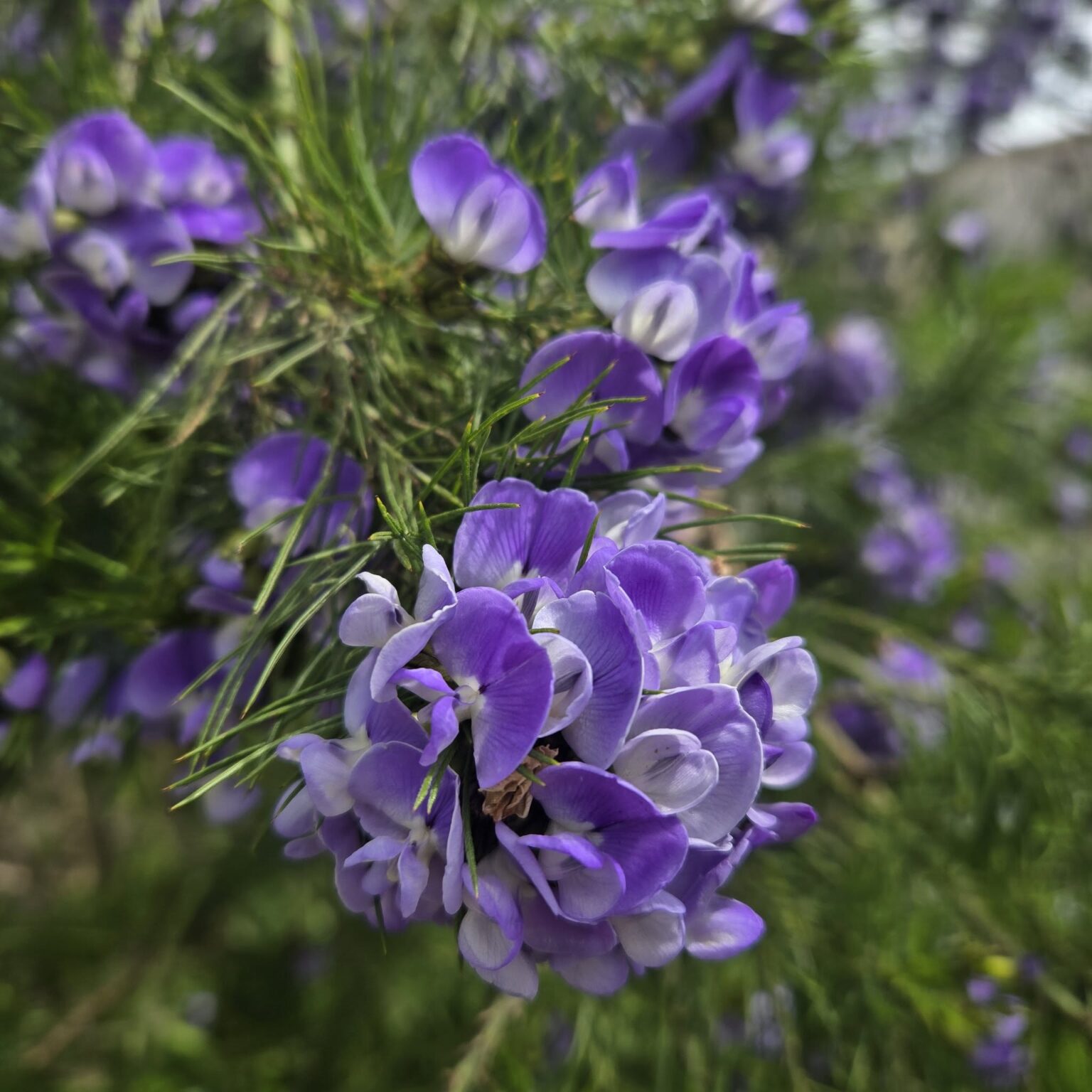
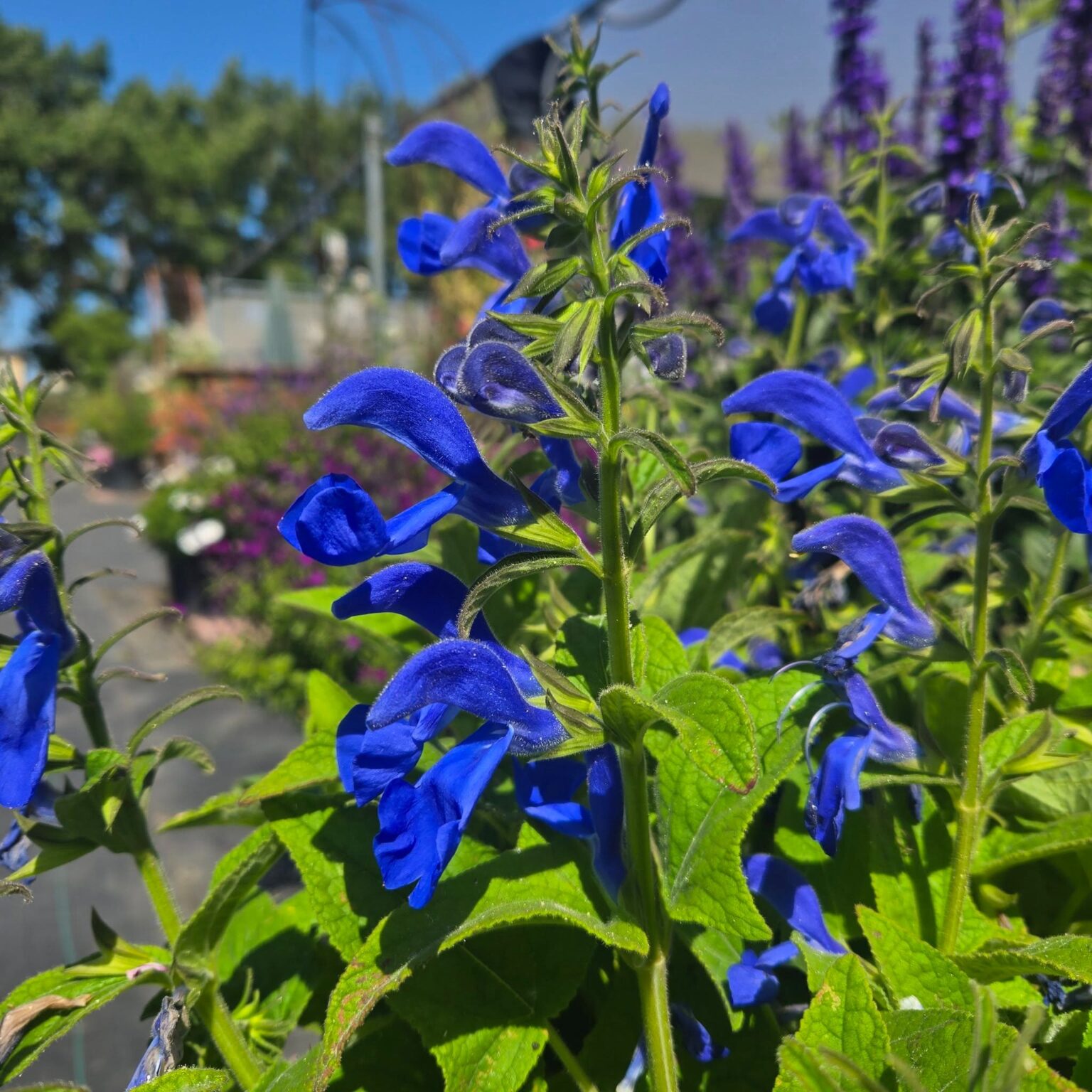
Additional plants come from local professional growers whose methods and facilities meet the very different propagation requirements of plants like sugarbushes (Protea). Other plants come from a network of small growers and seed savers cultivated by Annie’s Annuals over the years. It’s a collaboration that Wheeler is excited to expand so they can all “share the spotlight,” she said.
High on Wheeler’s list, too, is bringing back more of the odd plants and resurrected plants once offered by Annie’s Annuals. “I’m looking forward to bringing some fun plants out of the vault, reintroducing some really cool plants,” she said.
Putting on her businessperson’s hat, Wheeler said she is okay growing some plants that are less profitable in order to maintain the brand and the allure.
“There’s certain commitments you have to make for production levels that make it really challenging to do smaller crops that don’t make you any money,” she explained, instead, “you do them because they’re at the core of your identity, they’re compelling, and they bring people to the nursery.”
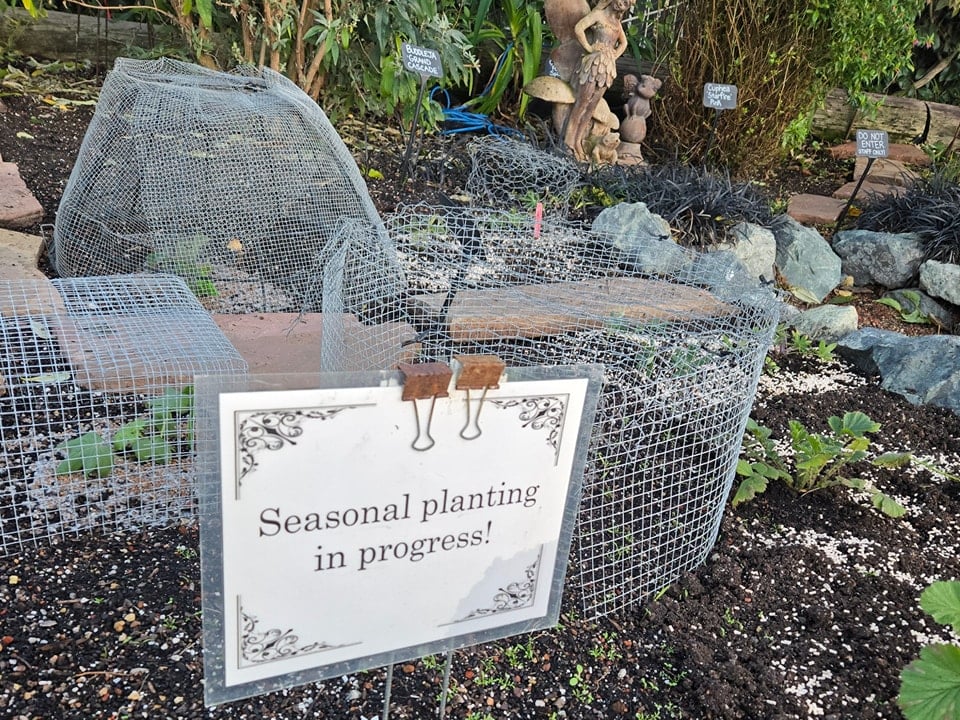
Wheeler trusts that a return to the nursery’s core values will draw people back to the nursery, she said. Beyond that, she’s passionate about creating experiences. She plans to add more picnic benches in the demonstration garden to welcome visitors—customers or not—to feel comfortable bringing lunch and hanging out. More speaking events and workshops are on the wish list, too. “I really want this space to be one where everybody has their moment to shine, and everybody gets to dive as deeply into their own personal curiosity wormhole as they want,” she said.
Orland is passionate about connecting with the community as well, “This is a community effort,” Orland said. “We own the nursery (but) we rely on the community to keep it going. It isn’t about one person having a nursery, it’s about what we can contribute to the community … to involve people in something beautiful and that it sustains the community.”
Wheeler described her vision for the nursery, explaining, “I want (people) to think it feels the way it used to feel—the breath of life, the thing that made people gravitate to this space and feel the sprit is still there, and the space is full of really happy smiling faces, and enthusiasm, and spirited conversation about plants. It really does feel new life has been breathed back into the space.”
“I hope people will say ‘Hi’ to our employees and to people working down in the nursery,” she continued. “And if I’m here, I hope they’ll pop in and say ‘Hi’ to me too. I love talking about plants and about people’s gardens!”
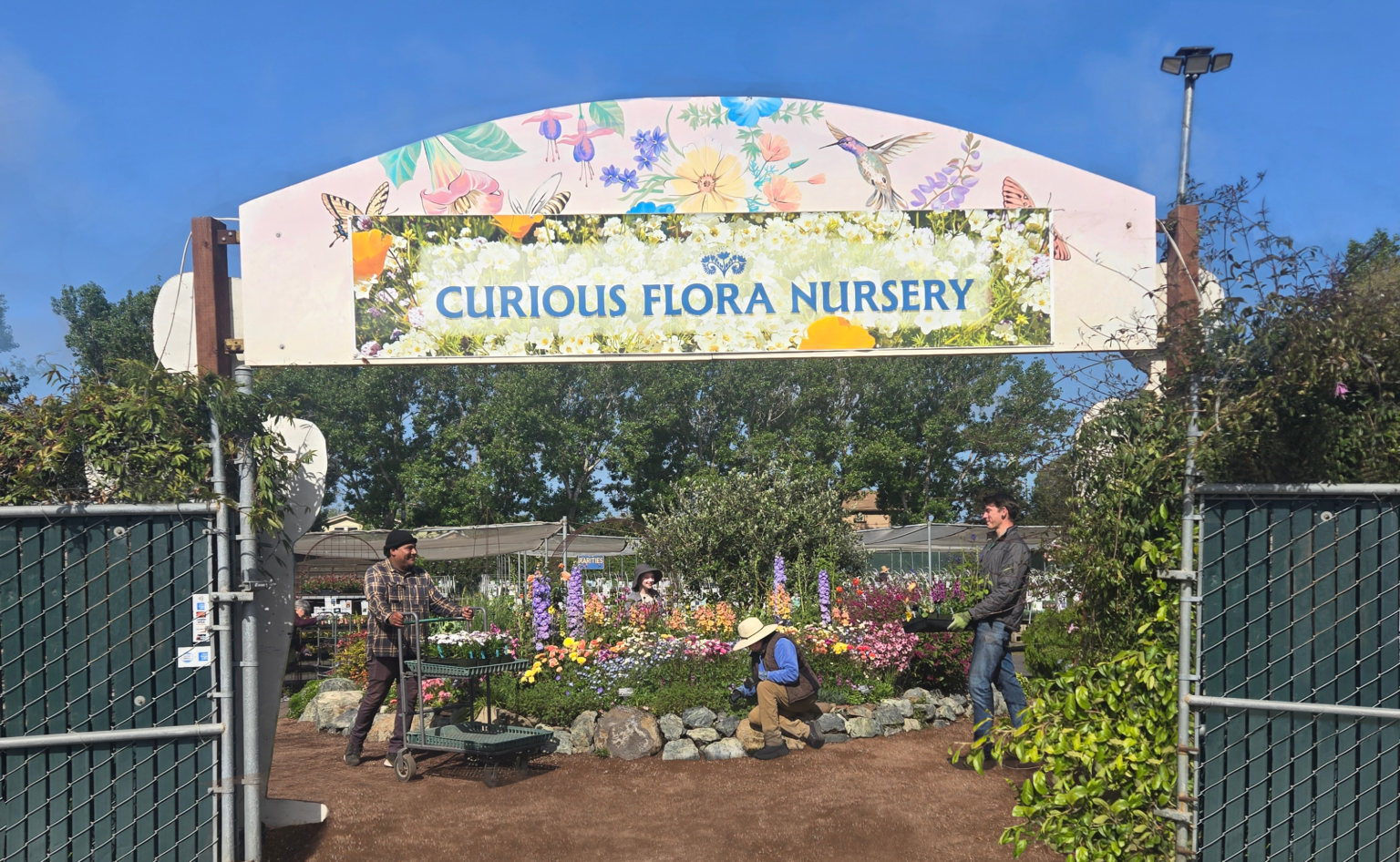


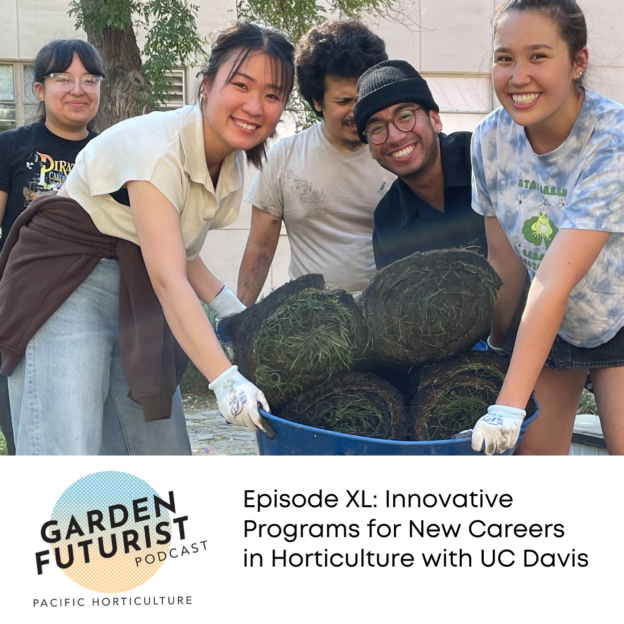


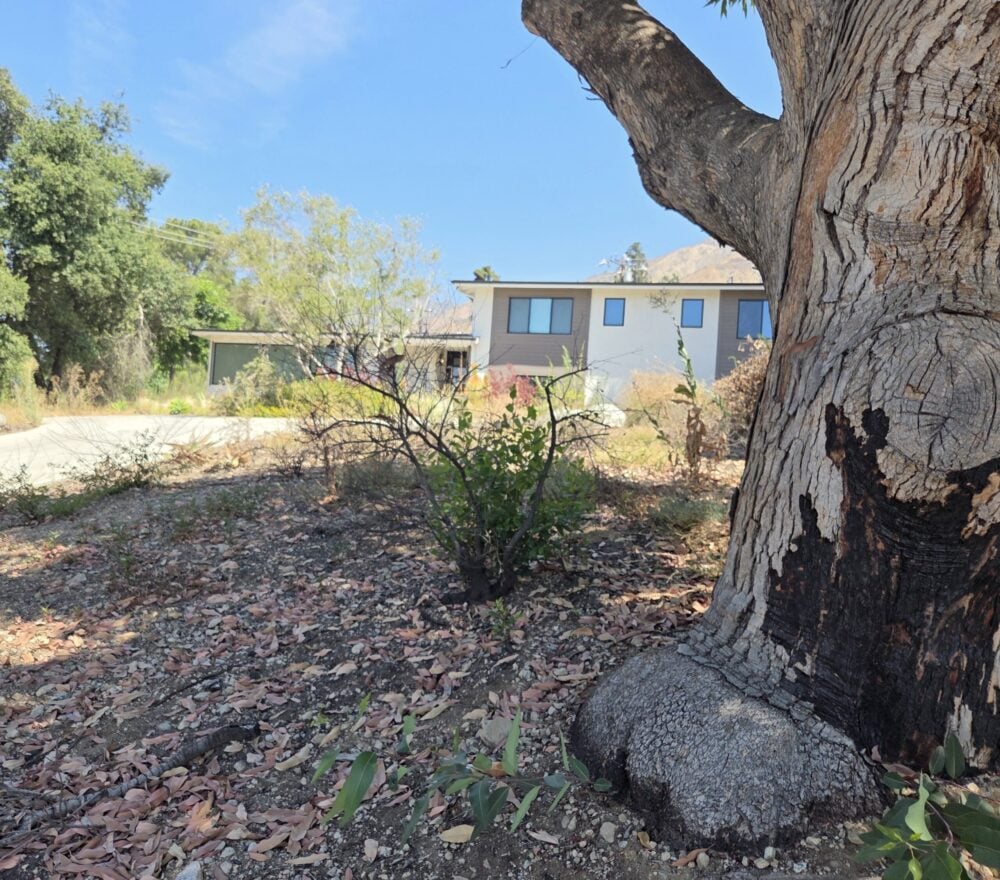
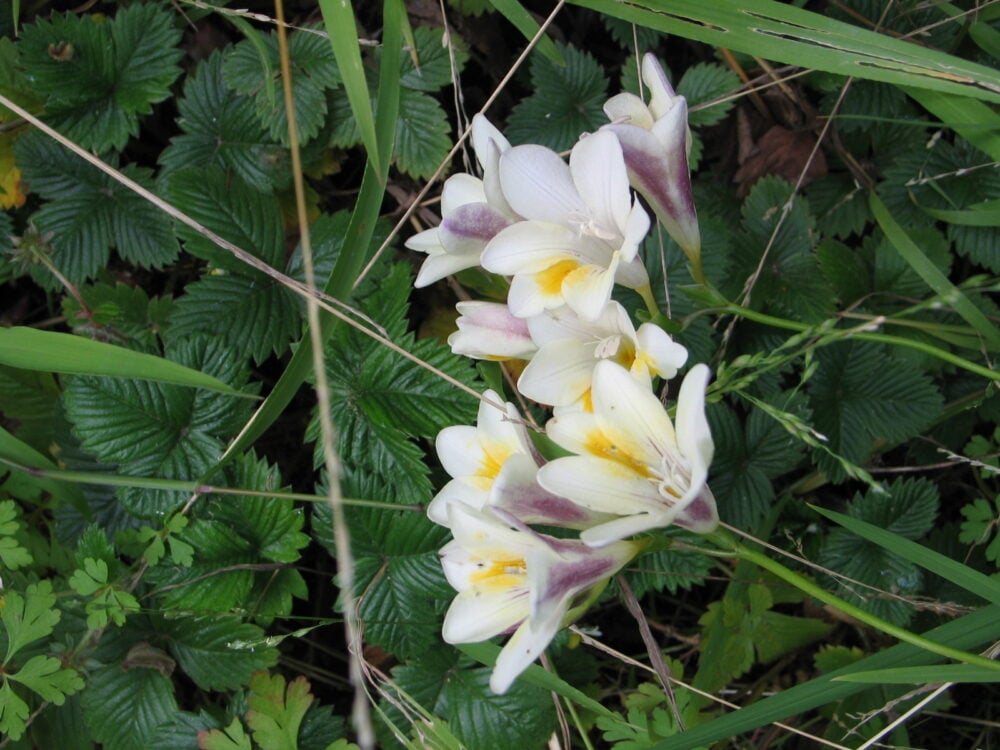




Responses